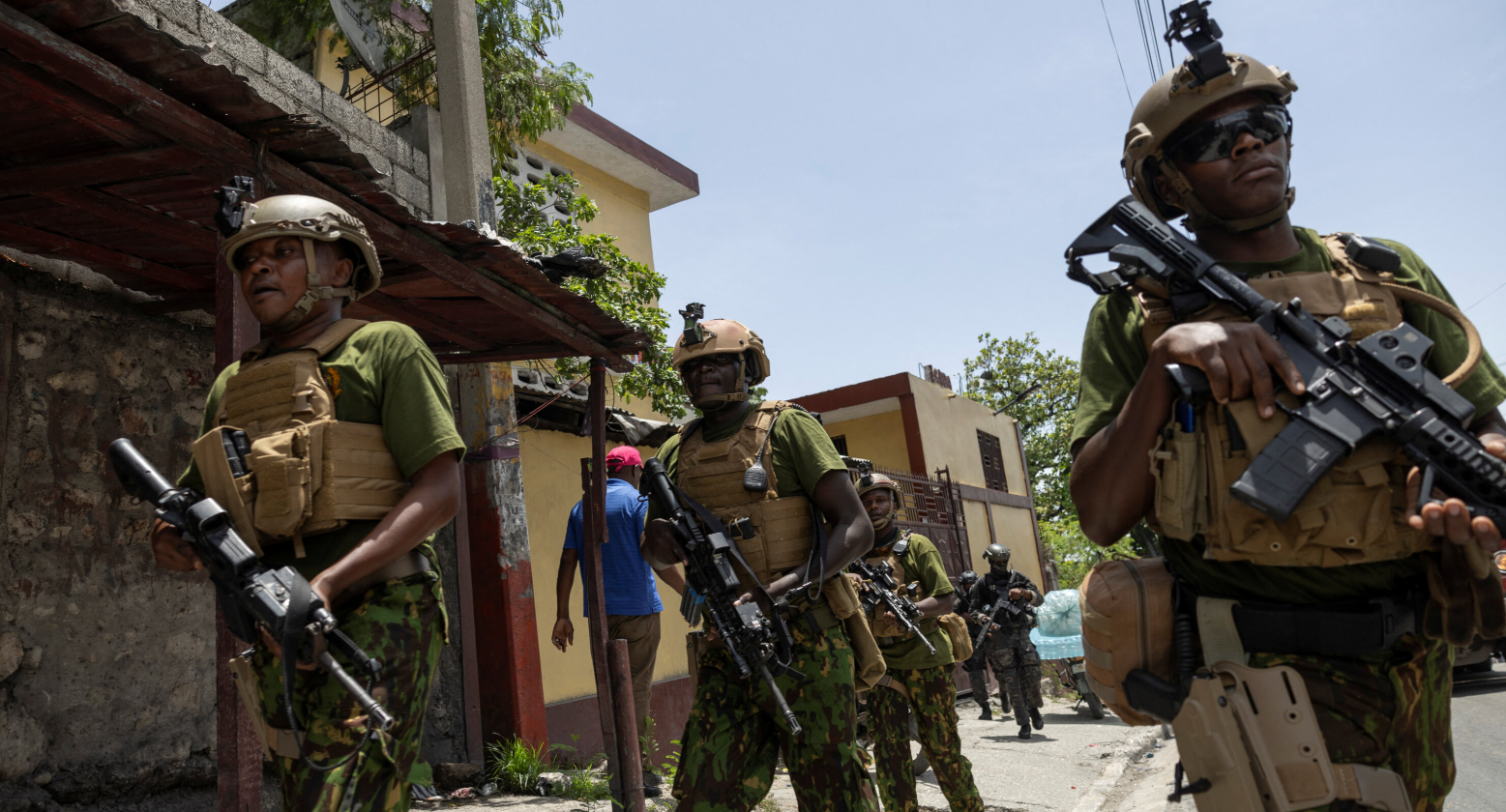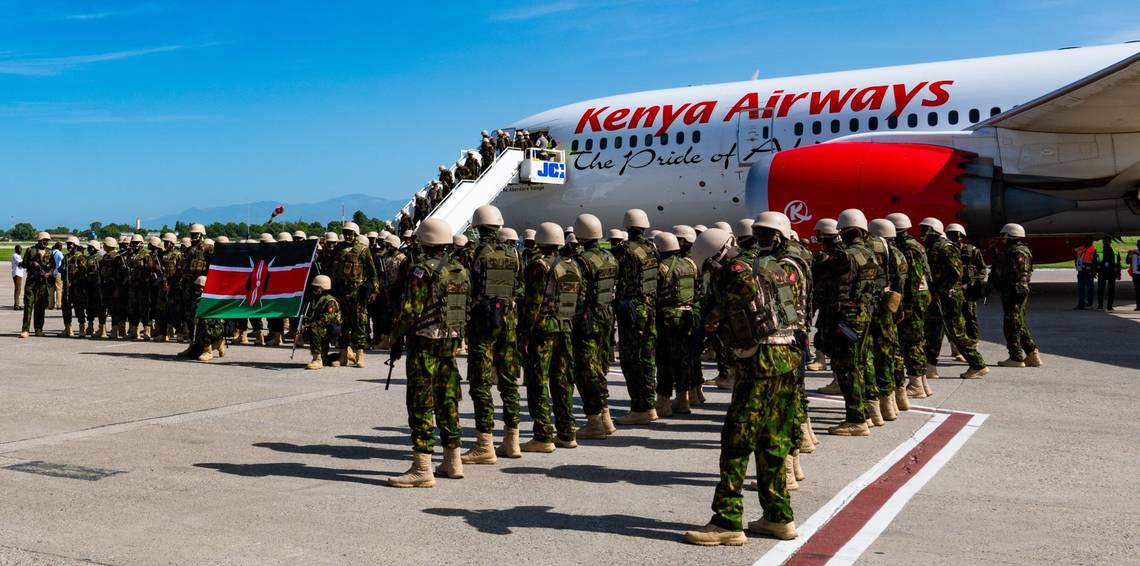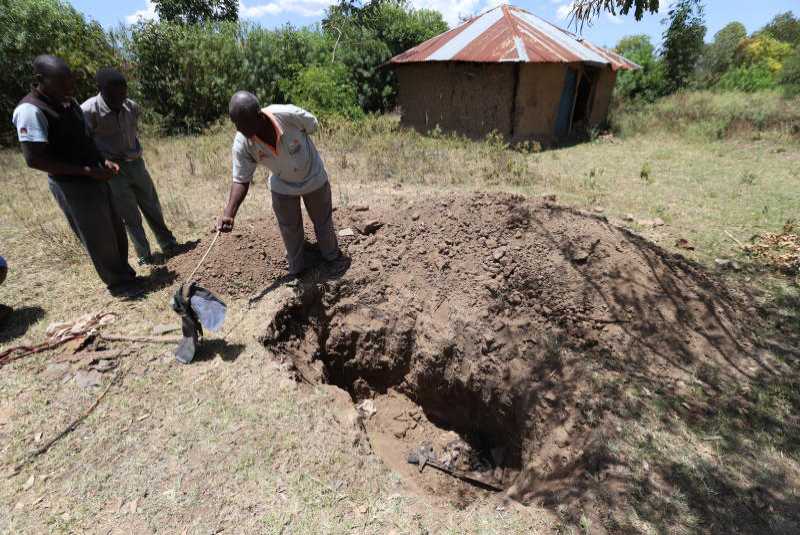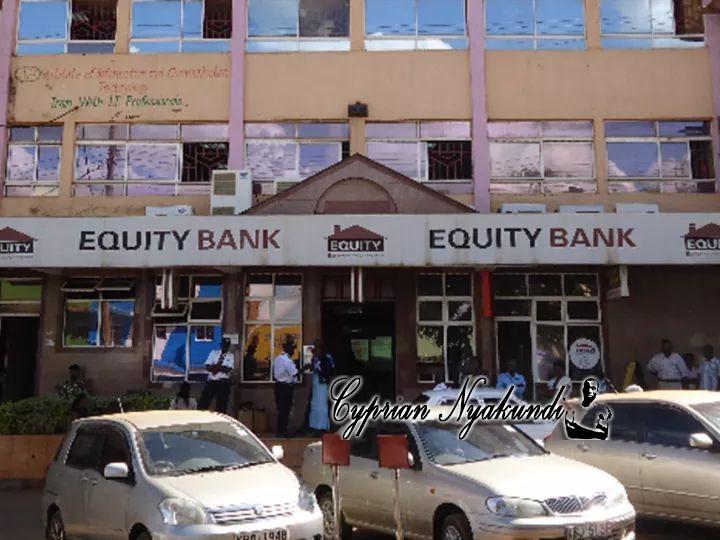Kenyan police officers sent to Haiti as part of the Multinational Security Support Mission (MSS) are raising the alarm. They claim they have been abandoned in the most dangerous parts of the country.
The officers say they are the only ones sent to fight armed gangs, while troops from other countries do safer tasks. This has created tension within the mission.
Many of the Kenyan officers feel exposed, unsupported, and betrayed. Their frustration is growing as the situation worsens and they face life-threatening danger with limited resources and backup.

Kenyan Police in Haiti Left Alone in Deadly Gang Zones
The Kenyan police in Haiti are growing increasingly angry. They say they are being used as frontline soldiers in the fight against Haiti’s brutal gangs. According to officers on the ground, their counterparts from other countries are rarely deployed to the same dangerous areas.
One officer who spoke to the Spanish news agency Agencia EFE described the situation as unfair and dangerous. “We are the only ones dealing with the bandits, while police officers from other countries are responsible for securing buildings or evacuating the wounded,” he said.
The Kenyan team, which leads the international mission, is tasked with patrolling volatile regions like the Lower Artibonite and parts of Port-au-Prince. These are strongholds of heavily armed gangs that have taken control of nearly 90 percent of the capital.
The pressure on these officers is immense. Not only do they face superior firepower, but they are also working under difficult conditions. The officers have reported issues such as faulty armoured vehicles, poor logistics, and no air support.
Many feel abandoned by the very mission meant to support them. One anonymous officer explained how some troops from other countries use their connections to avoid high-risk patrols. “Some call themselves ‘specialists’ in avoiding patrols,” he said. “It all depends on who you know.”
The lack of support has had deadly consequences. On March 5, a Kenyan officer was shot and killed in the Lower Artibonite region. His death was not officially confirmed by either the MSS or Kenya’s National Police Service. Haitian media reported that the officer’s body was taken by the gangs, and three armoured vehicles were also set on fire during the attack.
Mounting Casualties and Unanswered Questions
The growing number of injuries and fatalities among the Kenyan police in Haiti has increased fear and frustration. Many believe the mission leaders are not doing enough to protect the officers on the ground.
In 2024 alone, more than 56,000 people have died due to gang violence in Haiti, and over a million have been displaced. Yet, despite these staggering numbers, the mission continues to deploy Kenyan officers to areas where danger is highest without giving them enough tools to succeed.
“We are dealing with criminals who have better weapons than us,” said one officer. “We don’t have enough support or even basic protection.”
The failure to confirm casualties officially has also caused deep concern among the families of the officers. With no formal updates or recognition, it becomes hard for loved ones to know what has happened or receive the necessary support.
This silence only adds to the feeling of abandonment. Kenyan officers feel they are being treated as expendable, while others in the mission are kept away from danger.

Unequal Roles Within the Peacekeeping Mission
At the heart of the problem is unequal deployment. Kenyan police are doing the toughest jobs, while others are assigned to safer duties such as guarding buildings, assisting with evacuations, or running command posts far from the frontlines.
This imbalance is fueling frustration and resentment among the Kenyan officers. They argue that the mission should be a team effort, with every participating nation sharing the risks equally.
But that’s not happening on the ground. Instead, Kenyan officers are left to face armed criminals in crumbling neighbourhoods, while others stay in secure areas.
The officers say this approach is not only unfair but also dangerous for everyone involved. Without a united front, the gangs in Haiti grow bolder. The lack of coordination weakens the mission and endangers more lives.
For now, the Kenyan police in Haiti continue to perform their duties. But they are calling for change. They want better support, equal deployment, and open communication from the MSS leadership and the Kenyan government.
Their protest is not just about safety — it is about justice, respect, and the right to be treated as equals in a global mission.











































